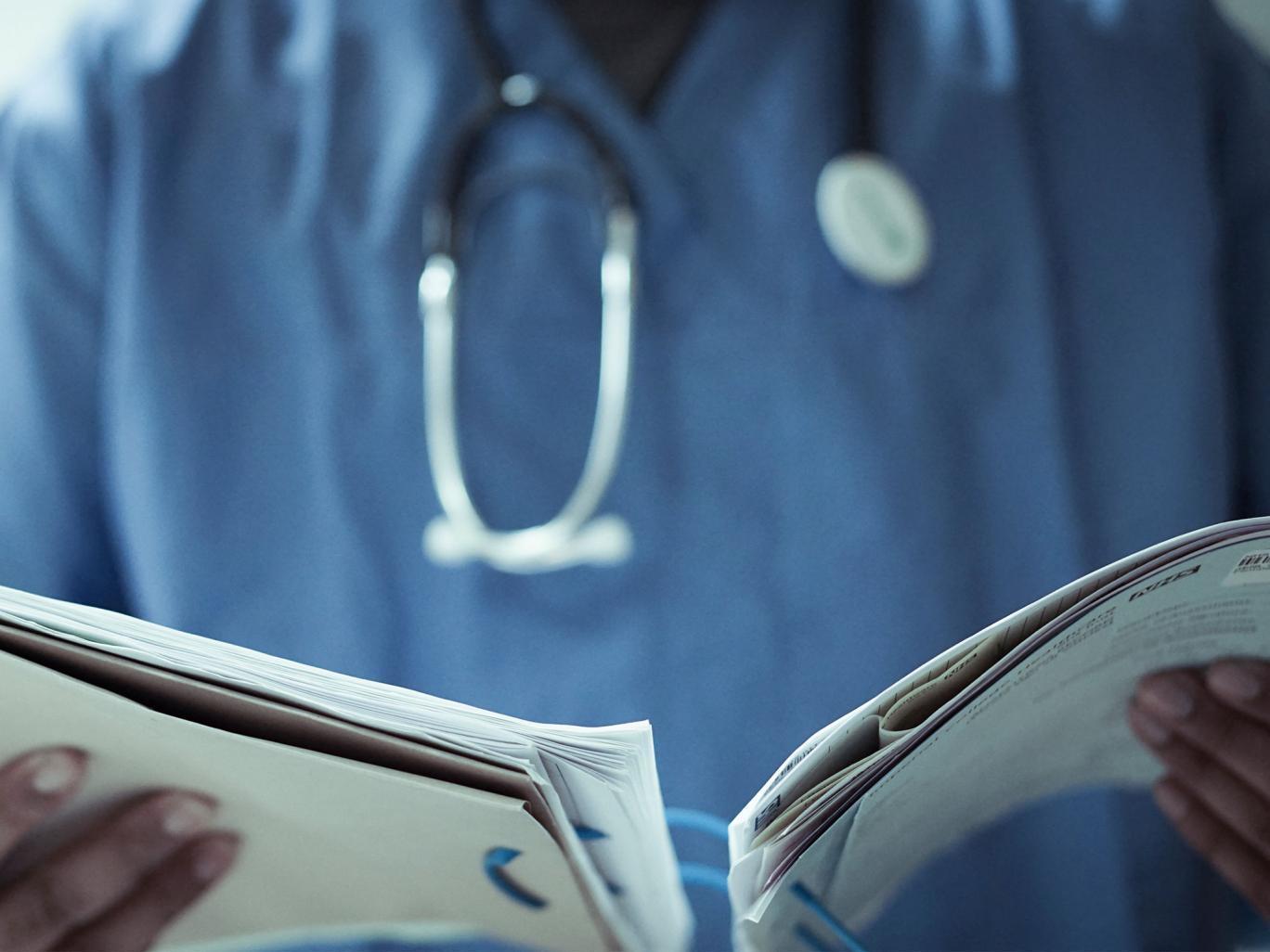Coronavirus: Doctors call for suspension of NHS charging regulations as vulnerable groups ‘effectively denied’ healthcare
Doctors forced to spend ‘wholly inappropriate’ amount of time establishing whether people should be charged or not

Your support helps us to tell the story
From reproductive rights to climate change to Big Tech, The Independent is on the ground when the story is developing. Whether it's investigating the financials of Elon Musk's pro-Trump PAC or producing our latest documentary, 'The A Word', which shines a light on the American women fighting for reproductive rights, we know how important it is to parse out the facts from the messaging.
At such a critical moment in US history, we need reporters on the ground. Your donation allows us to keep sending journalists to speak to both sides of the story.
The Independent is trusted by Americans across the entire political spectrum. And unlike many other quality news outlets, we choose not to lock Americans out of our reporting and analysis with paywalls. We believe quality journalism should be available to everyone, paid for by those who can afford it.
Your support makes all the difference.People with underlying medical conditions who would be at high risk if they contracted coronavirus are being effectively denied healthcare due to their immigration status, under measures that are “inappropriate and dangerous” to maintain during a pandemic, doctors have claimed.
Medical groups including the British Medical Association and Doctors of the World UK are calling on the government to suspend NHS charging regulations and data sharing, which they say risk “undermining national efforts to stop the spread of Covid-19”.
The current NHS charging policy, introduced in 2018 as part of the “hostile environment”, charges non-EU patients 50 per cent more than it costs the NHS to treat them, and requires hospital staff to demand proof of entitlement to free healthcare.
In response to the coronavirus outbreak, ministers introduced regulations on 29 January that meant no charge could be made to an overseas visitor for diagnosis or treatment of the virus, saying it was “very important, for public health protection, that overseas visitors are not deterred from seeking treatment for Covid-19”.
But in a letter to the Home Office and the Department of Health and Social Care, the organisations stated that even this policy forced medics to spend time establishing whether a patient should be charged or not, which they said was “wholly inappropriate”. They also said the rule failed to ensure that those with pre-existing conditions were able seek the care they needed without fear of charging or exposure to immigration enforcement.
The letter said: “In accordance with the regulations, which increase workloads and take time away from patient care, for the purposes of billing, doctors are required to not only make decisions about the urgency of any overseas patient’s care, but now must also determine whether treatment is being provided in relation to Covid-19. This is a wholly inappropriate use of NHS time amid the current crisis.”
Doctors of the World UK supports patients who are seriously unwell and fall into the Covid-19 high-risk groups, and whom it claims are being effectively denied NHS services. These people are at increased risk of requiring inpatient care if they contract the virus but, if hospitalised, would not be entitled to free NHS treatment for their pre-existing condition, the letter stated.
It argued that suspending charging regulations, and associated immigration checks and data sharing, at least for the duration of the crisis, was a “sensible and necessary step” in the fight against coronavirus that would ensure the most vulnerable could “safely and confidently” access medical care.
A government spokesperson said: “The government has added coronavirus to the list of infectious diseases for which everyone from overseas can receive treatment or testing free of charge.
“Given that charges do not apply for coronavirus treatment, NHS trusts have been reminded that immigration checks to establish entitlement to free care are therefore not required.
“We have clearly communicated this and will soon be publishing information about the free treatment of coronavirus in around 40 different languages, to ensure the messaging is clear.”
Join our commenting forum
Join thought-provoking conversations, follow other Independent readers and see their replies
Comments